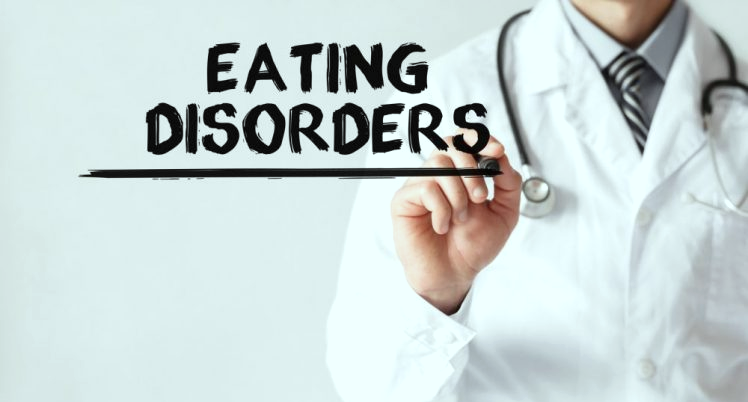Alternative Therapies
- Alternative Medicine
- Access Bars
- Access Body Processes
- Access Consciousness
- Access Energetic Faclift
- Acupressure
- Acupuncture
- Akashic Records
- Ancient Magnetism
- Angel Healing
- Aromatherapy
- Aura Reading
- Ayurveda
- Bach Flower Remedies
- Blueprint Numerology
- Bio-Energetics
- Breathwork
- Chakra Healing
- Cosmetic Acupuncture
- Cosmic Connection
- Crystal Healing
- Cupping Therapy
- Emotional Freedom Technique (EFT)
- Energy Healing
- Energy Medicine
- Ergonomics
- Family Constellation
- Face Reading
- Fengshui
- Gaiadon Heart
- Geomancy
- Heal Your Life
- Graphology
- Holistic Solutions
- Holy Fire Reiki
- Homeopathy
- Ho'oponopono
- Humkara with Haleem
- Hypnotherapy
- Inner Child Therapy
- Lama Fera
- Lenormand Cards
- Light Language Healing
- Jikiden Reiki
- Jin Shin Jyutsu
- Karuna Reiki
- Karmic Healing
- Law of Attraction
- Manual Therapy
- Matrix Reimprinting
- Metaphor Therapy
- Meditation
- Mediumship
- Melchizedek Method
- Merlin Trinity Healing
- Merkaba Healing
- Money Reiki
- Motivational Counseling
- Mudra Healing
- Nadi Vaidya
- Naturopathy
- Neuro Linguistic Programming (NLP)
- Numerology
- Oracle Cards
- Panchakarma (Ayurveda)
- Past Life Regression
- Pendulum Dowsing
- Physiotherapy
- Pranic Healing
- Pranic Psychotherapy
- Pythagorean Numerology
- Quantum Touch Healing
- Pyramids
- Redikall Healing
- Lama Fera
- Rudraksh
- Runes
- Soul Plan Reading
- Sound Healing
- Star Magic Healing
- Space Clearing
- Silva Mind Control Method
- Sujok therapy
- Tarot
- Tera MaiTM Seichem
- Tea Leaf Reading
- Theta Healing
- Twin Flame Healing
- Twin Hearts Meditation
- Unani Medicine
- Yoga
- Wicca
- Womb Healing
Diseases & Conditions
- Acne & Pimples
- Allergies
- Arthritis
- Asthma
- Behavioural Disorders
- Cancer
- Dandruff
- Diabetes
- Emotional Problems
- Gallstones
- Gastritis
- Hairloss
- Heart Diseases
- Hormonal Problems
- Hypertension
- Immune Disorders
- Infections
- Infertility
- Jaundice
- Kidney Disorders
- Liver Disorders
- Menstrual Disorders
- Migraine
- Neck & Back Pain
- Obesity
- Osteoporosis
- Peptic Ulcer
- Prevention
- Prostate Problems
- Psoriasis
- Sexual Dysfunctions
- Sinusitis
- Sleep Disorders
- Skin Diseases
- Stress
- Thyroid Disorders
- Ulcerative Colitis
- Urinary Infections
General Wellness
CBT for Eating Disorders - Santacruz

Overview
Eating disorders are a range of conditions involving an obsession with food, weight and appearance. This obsession negatively affects people's health, relationships and day-to-day living. To be diagnosed with an eating disorder, a person must have both disordered eating and psychological disturbance.
Anorexia Nervosa
People with anorexia have an intense and irrational fear of gaining weight and having body fat. They may believe they're fat, even when well below the normal weight for their height and age. Anorexia is the most fatal eating disorder: some people may die of complications related to starvation, while others die of suicide.
Bulimia
People with bulimia go through cycles of bingeing and purging. Bingeing involves eating large amounts of food quickly. This makes people feel physically ill and anxious about gaining weight. Then they purge, which can involve vomiting, depriving themselves of food, over exercising or using laxatives and diuretics.
Binge Eating Disorder (BED)
People with binge eating disorder overeat compulsively, consuming huge amounts of food, often all at once. Like the other disorders, people with BED often feel out of control and powerless to stop the behaviour.
Signs & Symptoms
Anorexia nervosa
Short-term symptoms include:
- Extremely restricted eating (e.g., avoiding mealtime, eating only certain foods)
- Extreme thinness
- A constant pursuit of thinness and an unwillingness to maintain a healthy weight
- An intense fear of gaining weight (e.g., frequently weighing themselves)
- A distorted body image (e.g., seeing themselves as overweight when they are not).
Long-term symptoms may include:
- Bone thinning
- Mild anemia
- Muscle wasting and weakness
- Brittle hair and nails
- Dry and yellowish skin
- Fine hair growth all over the body
- Severe constipation
- Low blood pressure
- Slowed breathing and pulse
- Heart damage
- Brain damage
- Multi-organ failure
- Sensitivity to cold
- Lethargy, sluggishness or feeling tired all the time
- Changes in menstruation
- Infertility.
Bulimia
Symptoms include:
- A frequently inflamed and sore throat
- Swollen salivary glands in the neck and jaw area
- Worn tooth enamel and increasingly sensitive and decaying teeth as a result of exposure to stomach acid
- Acid reflux disorder and other gastrointestinal problems
- Intestinal distress and irritation from laxative abuse
- Severe dehydration from purging of fluids
- Electrolyte imbalance (too low or too high levels of sodium, calcium, potassium and other minerals), which can lead to stroke or heart attack.
Binge Eating Disorder (BED)
Symptoms include:
- Eating unusually large amounts of food in a specific amount of time
- Eating even when full
- Eating fast during binge episodes
- Eating until uncomfortably full
- Eating alone or in secret to avoid embarrassment
- Feeling distressed, ashamed or guilty about eating
- Frequently dieting, possibly without weight loss.
Causes & Risk Factors
Eating disorders appear to result from multiple factors including cultural, social, family and emotional pressures; personality disorders; genetics and biological factors. Some research has shown a connection between child sexual abuse and subsequent development of eating disorders. Eating disorders typically begin during adolescence. Moreover, up to 90 per cent of eating disorders occur in women, though men are being diagnosed more often.


